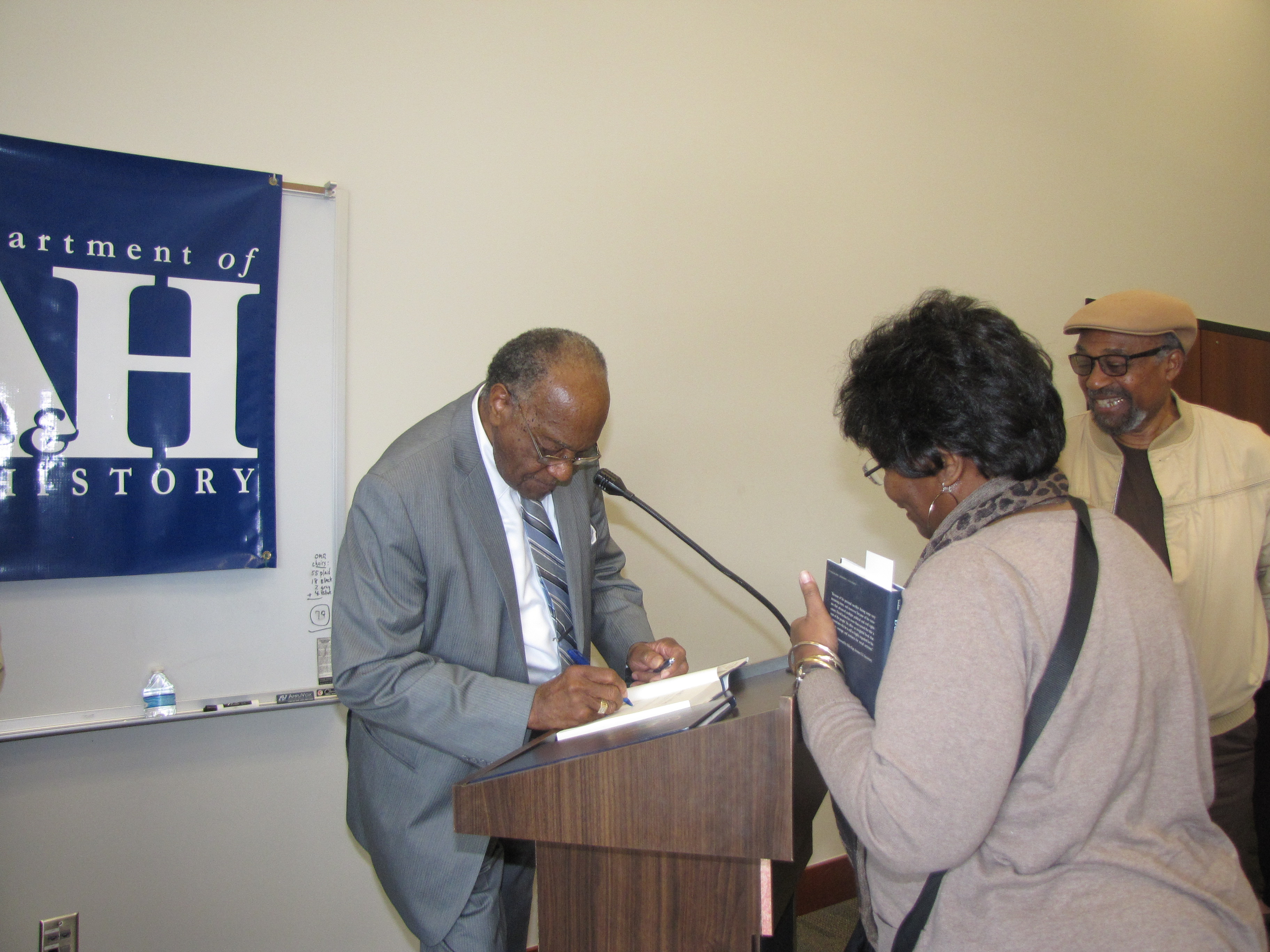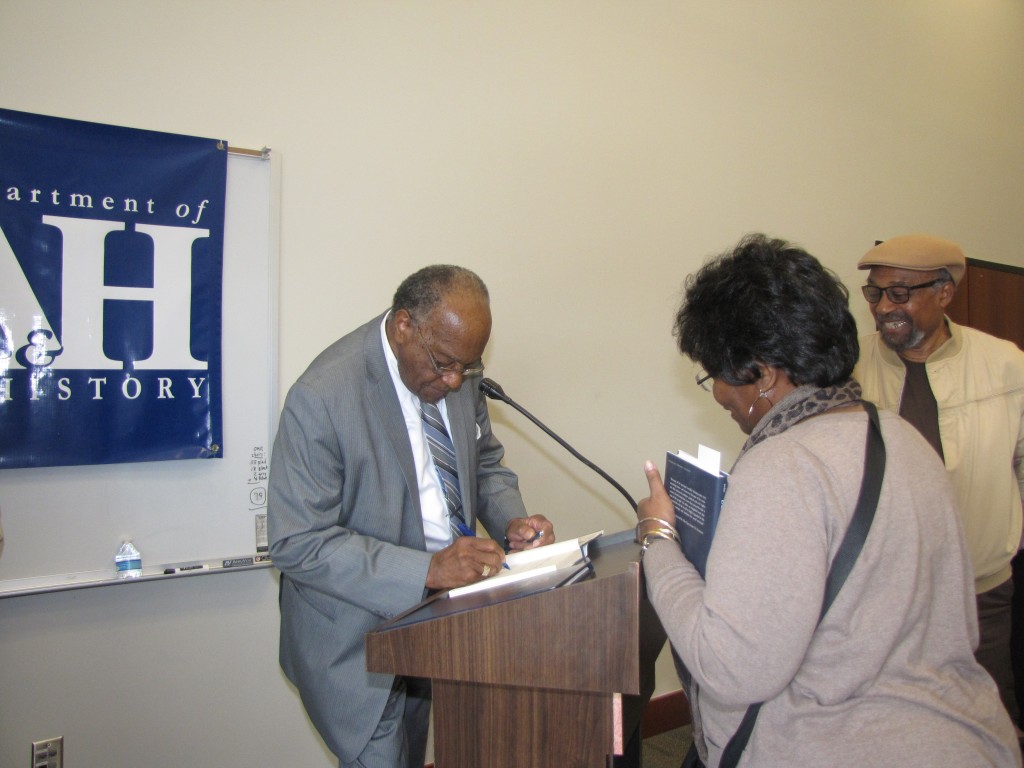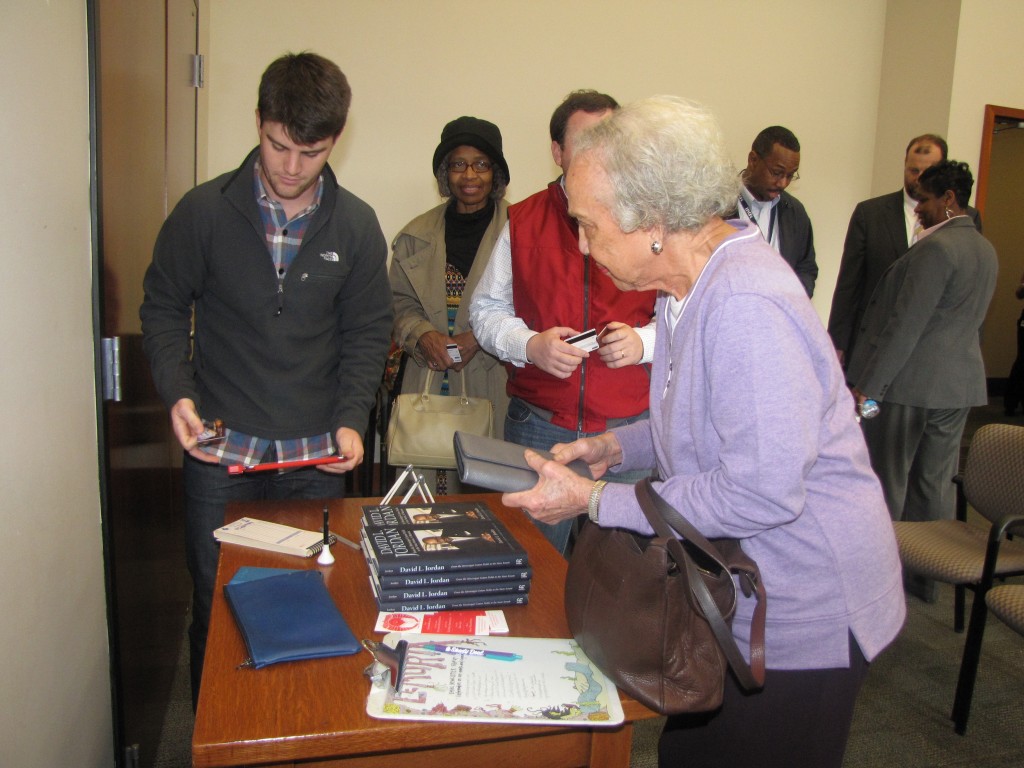
By Janice K. Neal-Vincent
Contributing Writer

The Mississippi Department of Archives and History kicked off events this month featuring Sen. David Jordan discussing his book From the Mississippi Cotton Fields to the State Senate: A Memoir.
The program was a part of MDAH’s History is Lunch series.
At the event, Attorney Mike Espy, former Secretary of Agriculture and former House representative of the Second District, recalled experiences with the senator as he introduced and presented him to the audience.
Espy opined that Jordan was “an overlooked hero” with angelic qualities. Referencing a dialogue he witnessed between the late Nelson Mandela and Jordan, Espy said the two leaders were alike in three ways. “They must be called; they are compassionate; and they command absolute respect from those they’re fighting for.”
Jordan, a Greenwood native, told those in attendance, “When I speak to a group of this magnitude, I better have a good beginning and a good ending and I must keep them close together.”
Jordan and many black school children in the Delta attended school four months out of the nine-month school year because they had to pick cotton. “I earned $2 a day, working all day for a week’s work. School began when all the cotton was gathered off the plantation. I had to repeat the sixth grade,” he said.
When Jordan completed the sixth grade for the second time, he went to the public city school called Stone Street High School. Despite having registered in September when school officially began, it was not until December during the school’s midterm exam period that he first appeared in the classroom. Jordan’s teacher asked him twice where he had been before he responded, “I’ve been picking cotton.”
Students snickered at him but his teacher saw that he was embarrassed and did not press the issue. Jordan confided that for the first time, “I saw something that I had never seen before and that was black people in authority. I was elated to see blacks in a light that didn’t just consist of picking cotton for ‘the master.’”
The senator cited passages of memorable historical incidents that plagued his mind. There was the time when his parents instilled in him and his siblings that “being the wrong color could cost you a scolding, a beating, or even your life.”
Jordan witnessed brutality on several occasions. “One Saturday afternoon (drunken) High Stepper, his wife and children passed by the white couple’s car…and High Stepper accidentally rested his hand on the car trunk. The white man quickly jumped out and suddenly began kicking High Stepper and he wouldn’t stop. He knew that High Stepper was intoxicated. It became so intense, so brutal and frightening, that High Stepper’s family started begging for his life. They were all sweating and horrified as they ran down the road dropping their groceries…too scared to turn back and pick up the food that they probably desperately needed to get through the season.”
The outspoken speaker relayed that incidents like that convinced him to remain in Mississippi and “to do something about the way blacks were treated.” He married his wife, Chris, in 1954, started a family in 1955, attended the Emmitt Till trial with his brother Andrew and saw it as “quickly becoming the catalyst for the modern civil rights movement.”
Many nights he mingled with blacks and whites at the Plaza Hotel which was the only black owned and operated hotel in the Delta to discuss the Emmitt Till tragedy.
Jordan graduated from Mississippi Valley State College in 1959 and enlisted in the U.S. Army that year. As years went by, he taught at a number of schools, advanced his studies at the University of Wyoming, was a dual-office holder (Greenwood senator and city councilman), debated issues on many bills, and authored the Mississippi Blues Bill “to promote authentic Mississippi blues music for the purpose of economic development and to empower the African-American culture that created it.”
The senator appealed to the audience for a Mississippi healing. He called for a flag that represents all Mississippians. He then noted, “The shooting at my home, the death of an innocent African-American man in a terrible hate crime, and the mysterious hanging of a black young man with his whole future ahead of him are issues that need investigating. If we want to be completely healed, then we must continue to move forward and not be afraid to seek answers to any and all acts perpetrated against us inspired by racial hatred.”
Former mayor of Pickens, Jonathan Moore, attended the program and mentioned that he had known Jordan a long time. “He’s always been an aggressive fighter. He’s opened doors for a lot of people. He never gives up,” Moore said.
Retired nurse, Lorine Harrington of Holmes County claimed to have benefitted greatly from the presentation. “I’m happy he mentioned Till because I met his mother. I’ve enjoyed keeping up with everything about Emmitt Till.” The Rev. Dr. Calvin E. Collins of New Zion M. B. Church in Greenwood pastors Jordan. He stated, “Jordan teaches Sunday School and is a deacon. His book is important regardless of what field you’re in.”
To obtain a copy of Sen. David L. Jordan’s book, call (662) 392-9552.

PHOTO BY JANICE K. NEAL-VINCENT

Be the first to comment